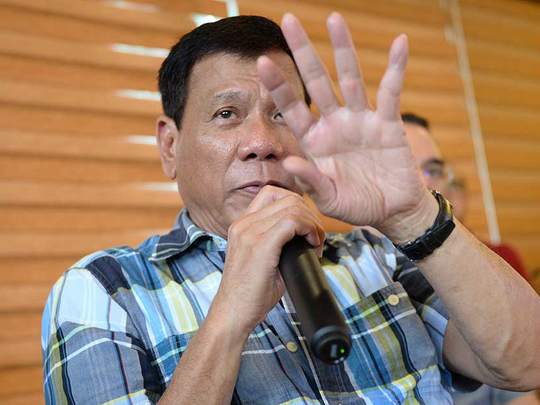
The disturbing allegations by a self-proclaimed assassin against Philippines President Rodrigo Duterte, of killing many of his opponents while the latter was mayor, are one more convulsion in the politics of the Philippines since the stewardship of Duterte in June.
In a Philippines Senate Committee, set up to probe alleged extra-judicial killings at Duterte’s behest, Edgar Matobato said that he was part of a 300-member Davao Death Squad (DDS), which he alleged was run on the orders of Duterte when he was the mayor of Davao city. According to Matobato, about 1,000 people were killed over 25 years on Duterte’s orders.
These allegations, which have been refuted by Duterte, however have the potential to deeply damage Philippines’ image unless a neutral probe is conducted into them.
The seriousness of the charges and the continuing controversies surrounding his anti-drug tactics — Duterte rode to power on promises of cleaning up the country of the twin scourges of drugs and corruption — have the potential to undo much of the good that has been enabling Philippines to be an economic force to reckon with in Southeast Asia.
Duterte 'once killed man with Uzi', says self-confessed hitman
Credibility of witness in death squad killings questioned
Duterte vows to expose more leaders in illegal drug trade
The country has shown impressive growth, attracted much foreign investment and dealt with unemployment with increasing success. It can ill-afford to have its pace decelerate due to such corrosive controversies.
Under the circumstances, Duterte must not only ensure a wholly neutral and independent investigation, but he must also fully support and encourage it. It is imperative that his consent be seen as proactive, not only in the best interests of his country but also to uphold the tenets of justice and transparency of intent. Nothing less is expected from the president of a country.








